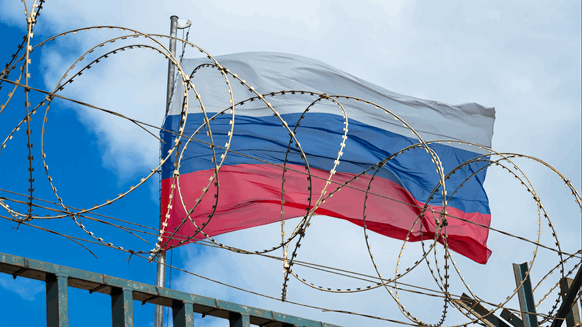Russia temporarily banned diesel exports in a bid to stabilize domestic supplies, pushing prices higher in already tight global fuel markets.
So far this year, Russia was the world’s single largest marine exporter of diesel fuel, well ahead of the US, according to Vortexa data compiled by Bloomberg. The country shipped more than 1 million barrels a day between January and mid-September, with Turkey, Brazil and Saudi Arabia among the top destinations.
The ban, which also applies to gasoline, comes into force on September 21 and has no end date, according to the government decree.
Diesel prices in Europe rose on concerns that the move will exacerbate global shortages. The world’s oil refineries are struggling to produce enough fuel amid curbed crude supplies from Russia and Saudi Arabia, the top producers in the Organization of the Petroleum Exporting Countries and their allies.
“Although it is only a temporary ban, the impact is significant as Russia remains a key exporter of diesel to global markets,” said Alan Gelder, vice president of refining, chemicals and petroleum markets at consultancy Wood Mackenzie Ltd. “The global refining system will struggle to replace lost Russian volumes at a time when global diesel inventories are already at low levels.”
Rising prices
In northwestern Europe, the premium for benchmark diesel futures to crude oil, known as the ICE Gasoil crack, rose sharply to above $36 a barrel, according to fair value data compiled by Bloomberg.
Diesel futures for delivery in October also rose higher relative to barrels for delivery the following month. The bullish structure, known as a pullback, broke above $35 per ton.
“The temporary restrictions will help saturate the fuel market, which in turn will lower prices for consumers” in Russia, the government’s press office said on its website.
Exemptions are made for minor supplies, including deliveries to trade alliance partners of some former Soviet republics, as well as intergovernmental agreements, humanitarian aid and transit, according to the decree.
The ban includes all types of diesel, including summer, winter and arctic blends, as well as heavy distillates, including diesels, according to the decree.
Last year, Russia’s seaborne exports of diesel-type fuel were about 0.95 million barrels per day, according to Vortexa data compiled by Bloomberg. This accounted for around 3.4% of total global demand.
“This is a big problem. We’re talking about exports of close to 1 million barrels a day that are shut down,” said Eugene Lindell, head of refined products at consultancy FGE. However, Russia will not be able to maintain the diesel export ban for long, because they will soon run out of tank space, he added.
Battle for inflation
The Russian government has spent weeks in talks with oil producers to decide on measures to curb rising fuel prices. President Vladimir Putin said last week that officials and companies had agreed on how to proceed going forward, but the dispute continued, people familiar with the matter said.
Rising car fuel prices have been a major contributor to inflation, a potential political headache as the Kremlin prepares for presidential elections in March. Retail prices for gasoline and diesel in Russia rose 9.4 percent year-to-date through Sept. 18, compared with a 4 percent rise in global consumer prices, the data showed most recent from the Federal Statistics Service.
Political sensitivity to rising fuel prices and the impact on farmers was exposed earlier this week when the speaker of the lower house of parliament, Vyacheslav Volodin, a key Putin ally, criticized the Ministry of Energy for not having prevented the jump in domestic fuel. prices. The government considered “quite serious measures,” First Deputy Energy Minister Pavel Sorokin told lawmakers who peppered him with questions.


